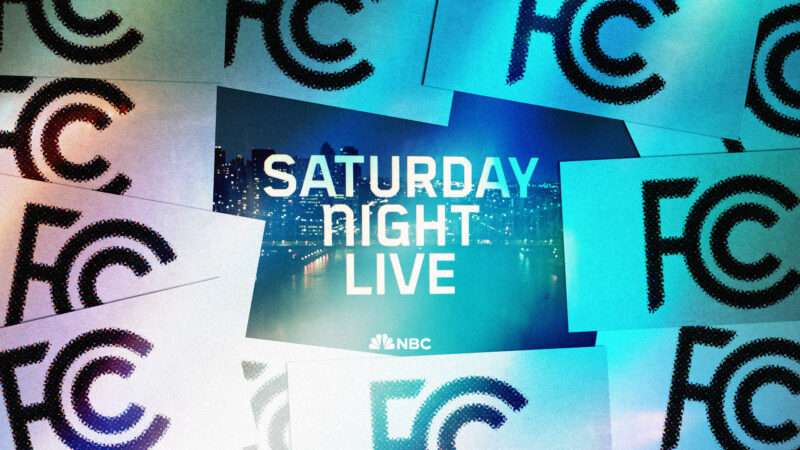
Is it a crime to take the Lord's name in vain on TV? Someone in Davidson, North Carolina, seems to think so, judging from a list of citizen complaints about Saturday Night Live submitted to the Federal Communications Commission (FCC) from January 2023 to February 2024.
"Someone on Saturday night live said God's name in vain!!!!" the viewer complained. "This is illegal on network tv!!!!"
One viewer from Easton, Pennsylvania groaned that Saturday Night Live showed images of "a young man doing cocaine with a spoon," helpfully including a YouTube link of the offending skit.
"This is highly inappropriate. It exposes minors as well as other viewers to illicit drug use. It shows how to use the drug, what form it comes in, and where it is usually consumed," the viewer wrote. "This is cannot [sic] be good for people. SNL and comedy should be funny but this is crass. What next? Shooting heroin, smoking crack on SNL?"
An incoherent, rambling complaint sent from Woodland Hills, California ended with the claim that the musician "Maxx Morando looks like a rapist, a racist, and a sexist pig."
The complaints were obtained by Brooke Germain, an editor at The Nevada Sagebrush, under the Freedom of Information Act and posted to the public records platform MuckRock.
The FCC noted 20 complaints about Saturday Night Live in total, 19 of them about "indecency" and one about poorly timed closed captions. In total, the commission received 2,440 television indecency complaints in 2023. That's a far cry from the days of the Parents Television Council's mass campaigns more than a decade ago, which sometimes generated 179,997 complaints in a single month.
Some of the complaints about Saturday Night Live focused on specific episodes. Six viewers claimed that a December 9 sketch mocking the congressional hearings over campus antisemitism was making light of a serious issue. Two viewers huffed that a parody of the Oscars red carpet show was encouraging anti-Irish racism.
Other complaints were less specific. "Tired of seeing violence being portrayed as funny in todays [sic] climate when a new mass shooting happens everyday," a viewer from Troy, Ohio, wrote.
Then there were six complaints about the word "goddamn." These complainants avoided actually spelling out the curse; they referred to it by the euphemisms "GD" or "saying the Lord's name in vain." One viewer from Des Moines, Iowa, called it "decadent and abhorrent" to use that word in a joke about Hillary Clinton threatening to commit suicide.
A complainant from Pinehurst, North Carolina, was angry Saturday Night Live parodied Donald Trump comparing himself to Jesus on Easter.
The FCC has long tried to censor profanity in the media, becoming the butt of jokes—and provoking more censorship.
After a radio station aired a George Carlin routine about the "seven dirty words you can't say on television," an angry listener complained to the FCC, leading eventually to a 1978 Supreme Court ruling that the FCC has the power to ban "obscene" content from broadcast media and to restrict "indecent" or "profane" content to certain hours of the day.
In the early 21st century, the Parents Television Council used FCC complaints as a weapon in its war against Family Guy. (That's the source of the 179,997 complaints in a month.) Family Guy responded with an entire episode mocking FCC censorship, complete with a song that purposely pushed the limits of indecency and profanity rules.
But these complaints are increasingly futile. The FCC can't regulate indecency and profanity on streaming services and other digital media, which are becoming more popular than broadcast media. As Reason's Jacob Sullum wrote in 2012, kids these days "do not know or care what 'broadcast television' is, and they certainly do not perceive a categorical distinction between 'over-the-air' channels and the rest."
The final blow to FCC censorship may have come from former president Donald Trump, whose on-air curses broke any remaining taboo. "It could be that it's harder for this FCC to prioritize going after broadcasters for things like indecency or profanity when the president himself has shown his indifference," Axios reported in 2020.
The post Read the FCC's Crank Mail About <i>Saturday Night Live</i> appeared first on Reason.com.












 Bengali (Bangladesh) ·
Bengali (Bangladesh) ·  English (United States) ·
English (United States) ·